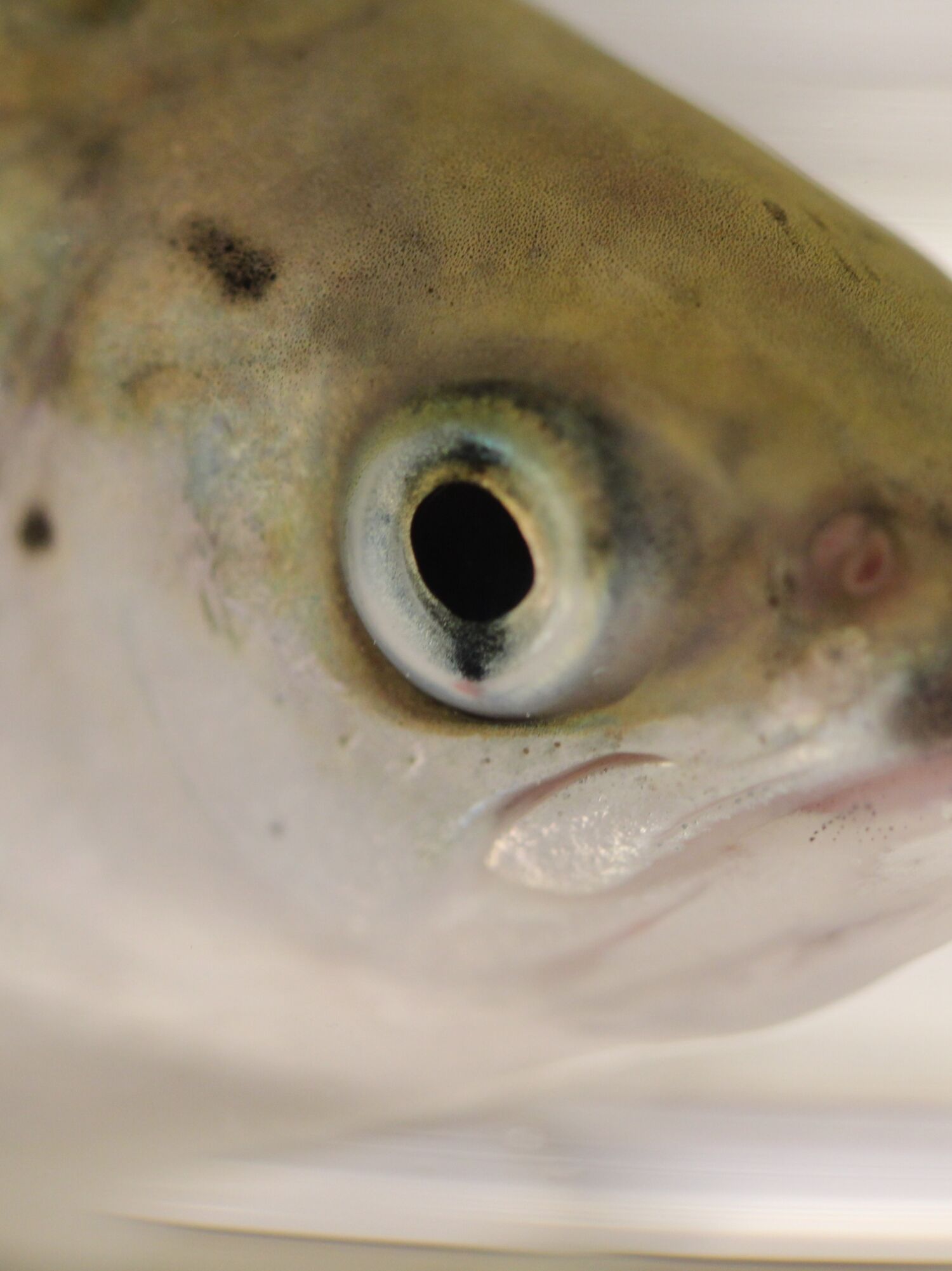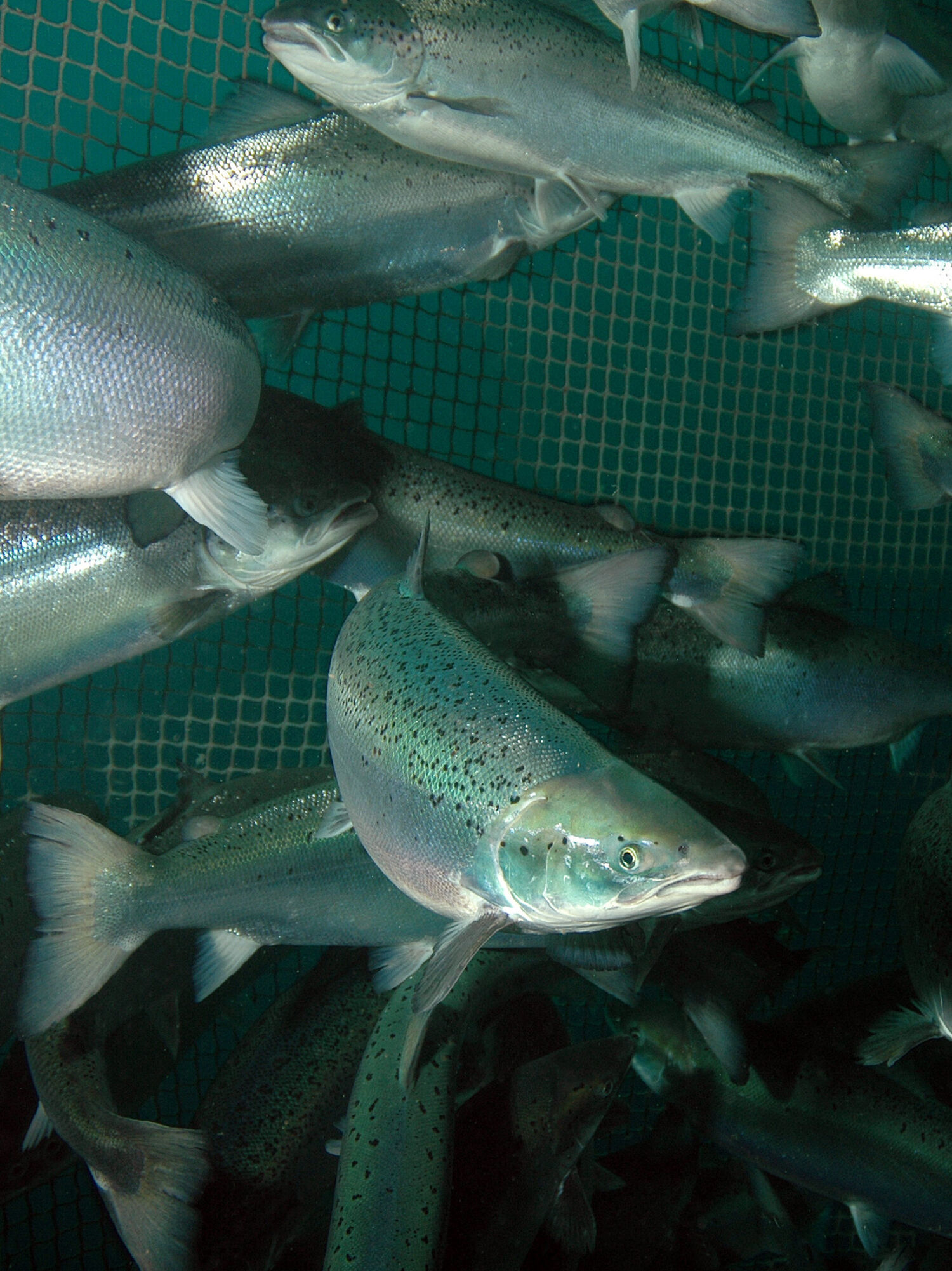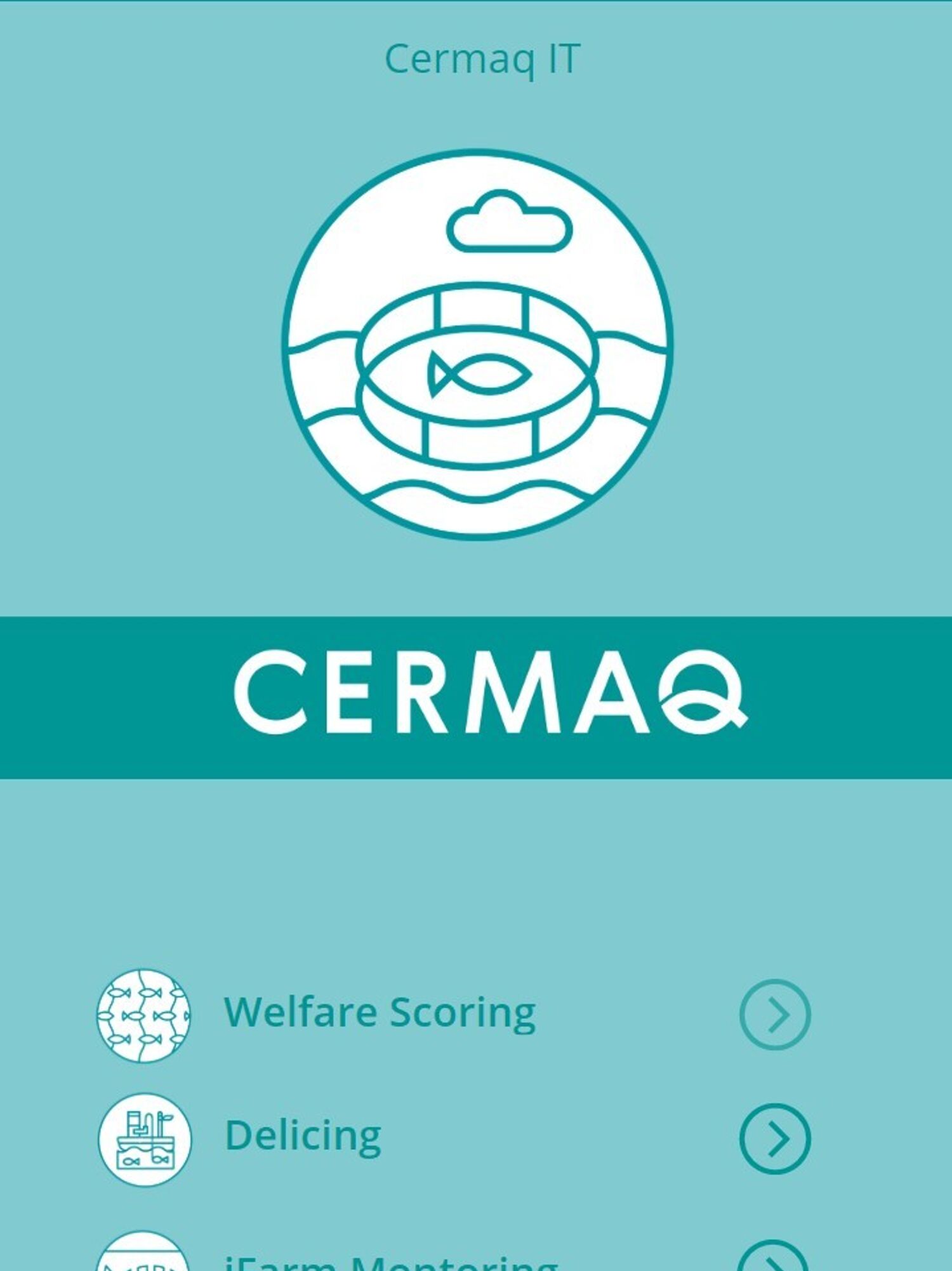Research and Innovation
Fish health and welfare
We wish our fish to thrive, grow and be healthy. A healthy fish with high welfare performs better and has ultimately better quality. This is essential for the productivity and sustainability in our farming. Good health is primarily ensured through optimal nutrition, beneficial environment in the sea, and preventing measures as vaccines.
Preventive fish health
Our approach is to develop preventive measures against diseases by identifying the causative pathogens and revealing the transmission routes of these pathogens. The first line of preventive measures are systematic pathogen screening and strict hygiene adapted to the production system. The most effective protection of diseases is obtained through vaccination, but also genetic selection by different methods (QTLs and GWAS) may improve disease resistance. Optimal feed and farming environment are also key to reduce disease risk.


Scoring fish welfare
Fish welfare has risen on the public agenda, and our R&D team on fish health has developed welfare indicators to monitor and ensure the welfare of our fish.
The indicators cover environmental parameters (e.g. oxygen) population parameters (e.g. density) and individual parameters.
Throughout our operations the fish is scored on welfare indicators regularly during their entire lifespan.
Developing individual welfare indicators
Our fish in sea are checked on these and more welfare indicators:
- Nose/head injury
- Eye damage
- Gills and Operculum
- Scale loss
- Red belly
- Skin and fin conditions
- Wounds
- Deformities
- Maturation
- Lice count

R&D Fish health and welfare team
Our fish health team is located at the University of Bergen, Norway. Some of the specific pathogens our R&D team focus on are SRS (Salmon Rikettsial Septicaemia) and Tenacibaculum.
Policy for use of antibiotics
Our policy for the use of antibiotics is to limit the use to cases where:
- Animal welfare is threatened by a bacterial disease
- A diagnosis of disease exists with a prescription of antibiotic by an authorized person
- The antibiotic has a proven therapeutic effect against the disease, and
- The antibiotic is approved for use in fish farming